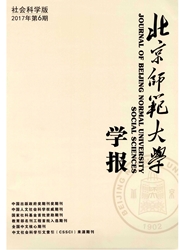

 中文摘要:
中文摘要:
人力资本理论对高等教育投资与收益的研究,长期以来是在确定条件下进行的,或者说是以无风险假设为基础的。但实际上,高等教育投资具有比较高的风险,这表现为依附性风险、选择性风险、失业性风险和流动性风险等。风险的存在会影响人们对高等教育进行投资的态度和动力,并引致诸多的社会问题。因此,要加强对高等教育投资风险的研究,探究防范高等教育投资风险的措施和途径。目前,主要是要优化高等教育规模,改革高等教育管理体制,完善劳动力市场,促进大学毕业生就业,而且政府决策者和广大民众要树立高等教育投资有风险的意识,从而使高等教育投资具有更高、更长久、更稳定的经济回报。
 英文摘要:
英文摘要:
The researches on the return of higher education investment in the human capital theory have long been carried out in the condition of certainty, or are assumed to be risk--free. However, higher education investment has comparatively high risks, such as dependent risk, selective risk, unemployment risk, liquidity risk, and others. In fact, their existence would affect the attitude and incentives of the individuals on the investment and has many potential social problems. It is therefore necessary to strengthen the research on the risk side and hence the prevention measures. The present China should aim to optimize the size of higher education, reform the management system, improve the labor market, and promote the employment of college graduates. Moreover, the government policy makers and the public should foster the awareness of in- vestment risks so that the economic return could be larger, longer and more stable.
 同期刊论文项目
同期刊论文项目
 同项目期刊论文
同项目期刊论文
 期刊信息
期刊信息
